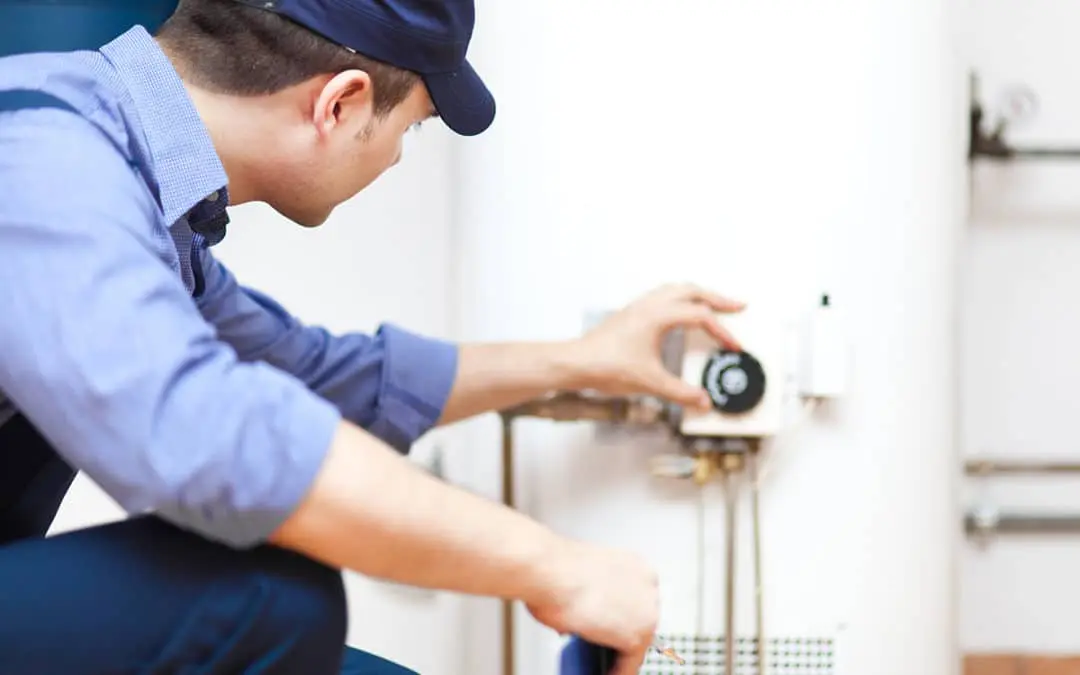The water heater in your home is the number two source of energy use, second only to your heating and cooling system. Roughly 20 percent of your home’s energy budget is consumed by water heater cost of use. Despite their importance to your home, water heaters are often an afterthought unless you’re forced to take a cold shower or a leak springs from the tank.
If you’re considering water heater replacement based on the age or productivity of your current unit, there are several factors to keep in mind. You want to choose a water heater that is powerful enough to supply hot water to your home on a regular basis, but you’ll also consider factors like energy efficiency and energy source. Homeowners tend to replace their current water heater with the same make and model. While that method is reliable, it may also be worth considering other types of water heaters for your home. Considering the water heater cost behind your monthly energy bill, it may be worth transitioning to a more efficient unit.
Water Heater Capacity
The water heater size you need depends on your peak water usage and the number of people living in your home. Traditional tank heaters typically hold 40, 50, or 55 gallons or more. The average American household has 2.5 people living in it. The water use in the average home will be much different than that of a family of four or more. It’s estimated that the average person uses 80 to 100 gallons of water each day, but that doesn’t necessarily mean that your home requires a 100-gallon tank.
It’s helpful to know the first-hour rating for storage water heaters. This is the number of gallons of water the water heater can produce within the first hour of use if the tank is full. Typically, a small storage tank – 50 to 60 gallons – is appropriate for a two- to three-person home. A medium tank – 80 gallons – works well for three to four people. A larger tank will best serve a home with four to six people.
When it comes to water heater replacement, be sure to measure the space when you remove the old unit. Don’t assume that the same capacity unit will fit in the same space. The new water heater may have more insulation, causing it to be wider or taller.
If you’re replacing or installing a tankless water heater, there will be no first-hour rating to consider. Tankless systems are judged on a gallons-per-minute rating. This number reveals how much hot water the system can produce over a set period of time. Most tankless systems deliver 2 to 5 gallons per minute. The higher the number, the more hot water your system will deliver. While tankless water heaters are generally more energy efficient, it may be necessary to have multiple units in your home if you have a large family.
Types Of Water Heaters
Your home’s power source (gas or electric) and how much water you use, will help determine the type of water heater you need. Popular water heater types include:
Storage Tank Water Heater
Fitting to their name, storage tank water heaters are insulated tanks that hold water, keeping it at a hot temperature until you need it. The water is pulled through a pipe atop the tank and delivered to your shower, dishwasher, or sink.
A natural gas water heater is more expensive than an electric model, but they typically operate with less energy, costing you nearly half that of the electric water heater each month.
Tankless Water Heater
Also called on-demand water heaters, tankless systems are designed with heating coils that heat the water as you need it. While this style of water heater is more energy efficient than the traditional version, it offers a more limited amount of hot water. Tankless water heaters offer 2 to 5 gallons of water per minute. These energy-efficient models are best for apartments or homes where only one source of water is usually run at one time. Homes that use natural gas as the energy source are ideal for tankless systems as electric models could call for a costly upgrade to a home’s electric system.
Heat Pump Water Heater
A heat pump water heater takes heat from the air surrounding it and uses it to warm the water. Most units use approximately 60 percent less energy than traditional electric units. They cost more upfront, but heat pump replacement or installation is very similar, and they can save you on your monthly energy bill. It’s important to store a heat pump water heater in an environment that stays between 40 and 90 degrees.
Make sure you have about 7 feet of clearance for a hybrid water heater. The space where you store the unit should be about 1,000 cubic feet of uncooled space so the unit can grab heat from the air.
Solar Water Heater
For the environmentally-conscious, solar water heaters can provide noticeable savings in the summer months. The systems are typically placed on the roof of your home and use the sun’s heat to warm water. Most solar water heaters utilize a backup system for cold or cloudy days. Solar systems are among the most expensive in terms of water heater cost.
Condensing Water Heater
For homes powered with gas heat that require a hot water heater with a 55-gallon capacity or more, condensing water heater replacement is a good option. The unit captures exhaust gases, transfers the gases to a coil in the unit, and cold water can absorb much of the heat. These units have a tank like traditional water heaters but tend to be more energy efficient.
Water Heater Replacement Westchester CountyThe life expectancy of your water heater will depend on the style you choose. Traditional tank heaters last 10 to 12 years, but with proper maintenance, they can provide service for longer. If you want to make a change to a more energy-efficient model or a faulty unit has sparked the need for water heater replacement, the professional team at Flotechs can help.



